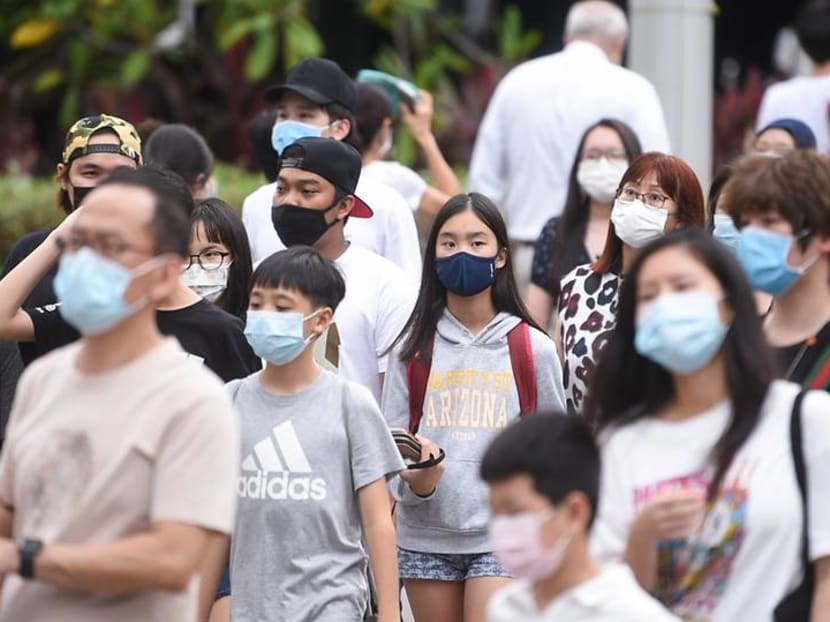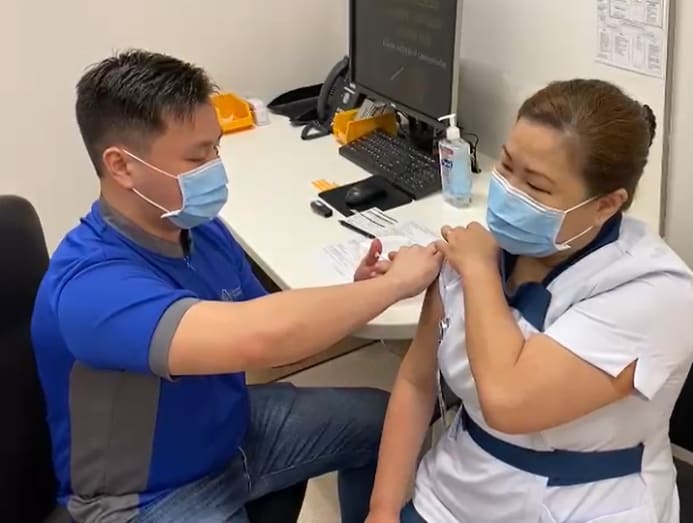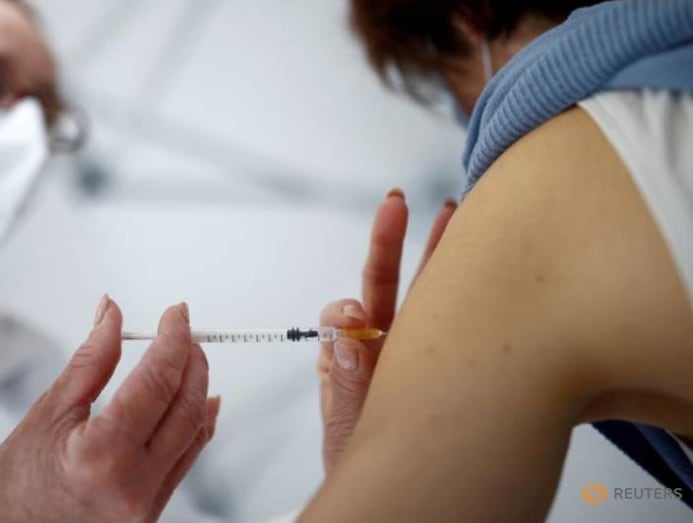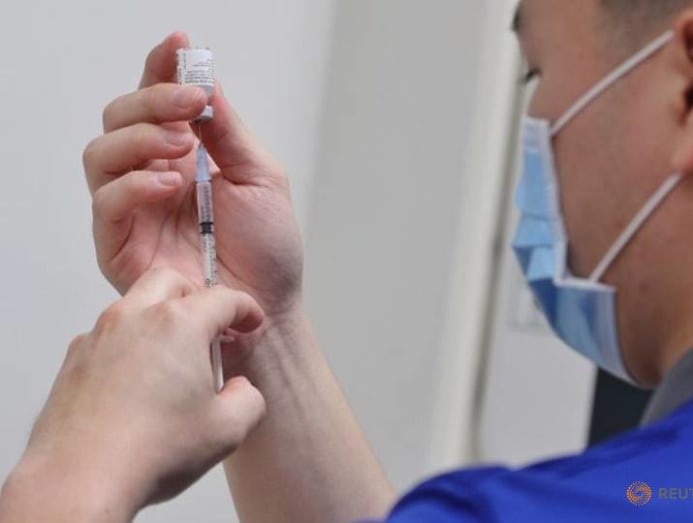commentary Commentary
Commentary: Concerns over long-term side effects could hold back Singapore’s COVID-19 vaccination programme
Some argue we should wait until more data on vaccine safety and effectiveness become available as vaccination is not the only line of defence we have against SARS-CoV-2 – but Duke-NUS Medical School’s Ooi Eng Eong begs to differ.

File photo of pedestrians wearing protective face masks along Orchard Rd in Singapore on Sep 9, 2020. (Photo: Gaya Chandramohan)
SINGAPORE: It has been just over a year since severe acute respiratory syndrome coronavirus-2 (SARS-CoV-2) emerged as a cause of the respiratory disease, COVID-19.
Despite this relatively short time, this virus has afflicted more than 100 million around the world. More than 2 million COVID-19 patients have died.
In fighting the greatest public health crisis in a century, the arrival of COVID-19 vaccines is thus much welcomed. In Singapore, seniors aged 70 and above will receive COVID-19 vaccination letters over the next few weeks, after pilots have been conducted in Tanjong Pagar and Ang Mo Kio.
Vaccination mimics an encounter with the virus to train the body’s immune system to remember, recognise and rout this virus if it ever strikes.
Initial signs of Israel’s COVID-19 vaccination programme, one of the first and fastest in the world, are giving hope to many healthcare professionals globally. High vaccination coverage in this country has led to remarkable drop in the number of new COVID-19 cases.
READ: Commentary: This 71-year-old wants you to get a COVID-19 vaccine once you can. Here’s why
READ: Commentary: Misinformation threatens Singapore’s COVID-19 vaccination programme
As with other vaccines with which we have successfully controlled including dreaded diseases such as smallpox and polio, the antiviral defence offered by COVID-19 vaccines will help reduce SARS-CoV-2 infections and prevent the spread from the upper to the lower airway, thereby reducing the likelihood of severe respiratory disease.
PROTECTION FROM VACCINES TRUMP SIDE EFFECTS
Like all vaccines, COVID-19 vaccines have side effects that range from common but mild symptoms to severe but rare conditions.
Common side effects such as pain at injection site, fever, body ache, headache and tiredness generally last mostly for a day or two and go away without requiring any medication.
Some are, however, concerned about “long-term” side effects. Among the ten healthcare workers interviewed by TODAY in January, half were concerned the possible long-term effects of the Pfizer-BioNTech vaccine have not been studied.

These “long-term” side effects are mostly off-target effects of the immune response against the viral protein which may happen when antibodies developed after vaccination and infection can react against other molecules normally produced by our bodies, such as the sheath that surrounds nerve cells.
For example, these rare reactions are known to happen after certain viral infections including the seasonal flu. Guillain-Barre syndrome, a rare neurologic condition that causes weakness and paralysis throughout the body, is known to have been experienced by some people who have received flu vaccines in the days or weeks after vaccination.
While these “long-term” side effects may continue for a prolonged period of time, their onset, if they happen, would usually be within days to approximately six weeks after vaccination. There is no known side effect of any vaccine that pops up years later.
It is also important to know that both short-term and long-term side effects are neither new nor unique to COVID-19 vaccines. Most people will fully recover from the adverse events without long-term consequences.
READ: Commentary: Fall in global weekly COVID-19 cases shows importance of complying with public health measures
In addition, these reactions are rare taking into account that we are in the midst of the biggest vaccination push in history to vaccinate the world against a deadly virus.
VACCINATE NOW, NOT LATER
In view of the possibilities of rare, “long-term” side effects of COVID-19 vaccines, some then argue that why not wait until more data on vaccine safety and effectiveness become available as vaccination is not the only line of defence we have against SARS-CoV-2.
Singapore, and other countries like New Zealand, have been able to minimise locally acquired COVID-19 cases through early case detection and isolation, along with safe distancing measures, mask wearing and travel restrictions.
However, I beg to differ.
Firstly, more than a 100 million people have been vaccinated around the world and reports of vaccine-related side effects remain encouragingly well-tolerated.

Secondly, although physical distancing and quarantine measures do work, these measures are costly for societies and economies around the world.
Finally, SARS-CoV-2 is now too widespread globally to be eliminated from the human population. Instead, SARS-CoV-2 will likely join the list of human viruses as a common cause of acute respiratory illness.
It is clear that compared with the likelihood of severe respiratory disease and the development of debilitating "long COVID" from a SARS-CoV-2 infection, the price of not vaccinating far outweighs the risk of adverse events from vaccination.
SIGN UP: For CNA’s Commentary weekly newsletter to explore issues beyond the headlines
NOTHING COMPROMISED BY RAPID VACCINE DEVELOPMENT
Based on currently available clinical trial data, the COVID-19 vaccines approved in Singapore, specifically those developed by Pfizer/BioNTech and Moderna, are both safe and efficacious in preventing COVID-19.
While some question if corners were cut and safety standards were compromised in order to expedite vaccine development, the answer to both questions is a resounding no for two reasons.
First, the record speed in COVID-19 vaccine development is achieved as a result of advances in vaccine technology. The new messenger RNA technology in the Pfizer-BioNTech vaccine has been employed in breast cancer treatment and is not entirely alien to the healthcare community.
READ: No corners cut in Singapore’s COVID-19 vaccine rollout: Expert panel doctor
Science has also progressed much from the outbreaks of SARS and MERS, both of which are also caused by coronaviruses related to SARS-CoV-2.
Without additional studies, we knew what part of the SARS-CoV-2 virus to target and had the technologies to deliver the spike gene or protein to train our immune system to prevent COVID-19.
Second, given the urgency of this pandemic, the necessary studies on COVID-19 vaccine safety and potency have been conducted in parallel rather than in a series, which is the conventional way.
The risk in doing so was mainly financial – developers committed to the cost of multiple studies before knowing if the vaccine candidates were likely to succeed.
READ: Commentary: Pharmaceutical firms saved the world with COVID-19 vaccine in record time. But credit goes to others too
The high incidence of COVID-19 also meant that the pivotal phase 3 clinical trials for the vaccines approved in Singapore were able to obtain a sufficient number of cases for meaningful statistical analysis in a much shorter time than other vaccines.
DURATION OF IMMUNITY STILL UNCLEAR
It is true that due to the relatively short duration of the pivotal clinical trials, we may not yet know if and when a booster vaccination is needed as the protection period from COVID-19 vaccines remains to be fully defined. But this should not hold anyone back from vaccination.
This is because breakthrough infections, or infections in vaccinated individuals, can be detected with surveillance conducted by the Ministry of Health in Singapore and around the world on even vaccine-preventable diseases.

As a result, booster vaccination would be initiated when needed. This has happened for other vaccines, including those against measles, mumps and rubella.
At the moment, the two COVID-19 vaccines available in Singapore are recommended for all adults, except for pregnant women, severely immunocompromised persons, and children under the age of 16 years for Pfizer-BioNTech COVID-19 vaccine and children under the age of 18 years for Moderna COVID-19 vaccine.
While we will need more data to confirm whether vaccines can help stop transmission of the virus, it is of paramount importance that people who are vulnerable and eligible get vaccinated soon to protect themselves from severe disease.
We must know that vaccines cannot prevent COVID-19 but vaccination can. Therefore, the question is not whether we need to be vaccinated but rather how soon we can be vaccinated and be protected against COVID-19.
Listen to the author outline what's needed to get a vaccine manufactured, transported and administered in our Heart of the Matter podcast:
BOOKMARK THIS: Our comprehensive coverage of the coronavirus outbreak and its developments
Download our app or subscribe to our Telegram channel for the latest updates on the coronavirus outbreak: https://cna.asia/telegram
Ooi Eng Eong is Professor, Emerging Infectious Diseases Programme at Duke-NUS Medical School.





